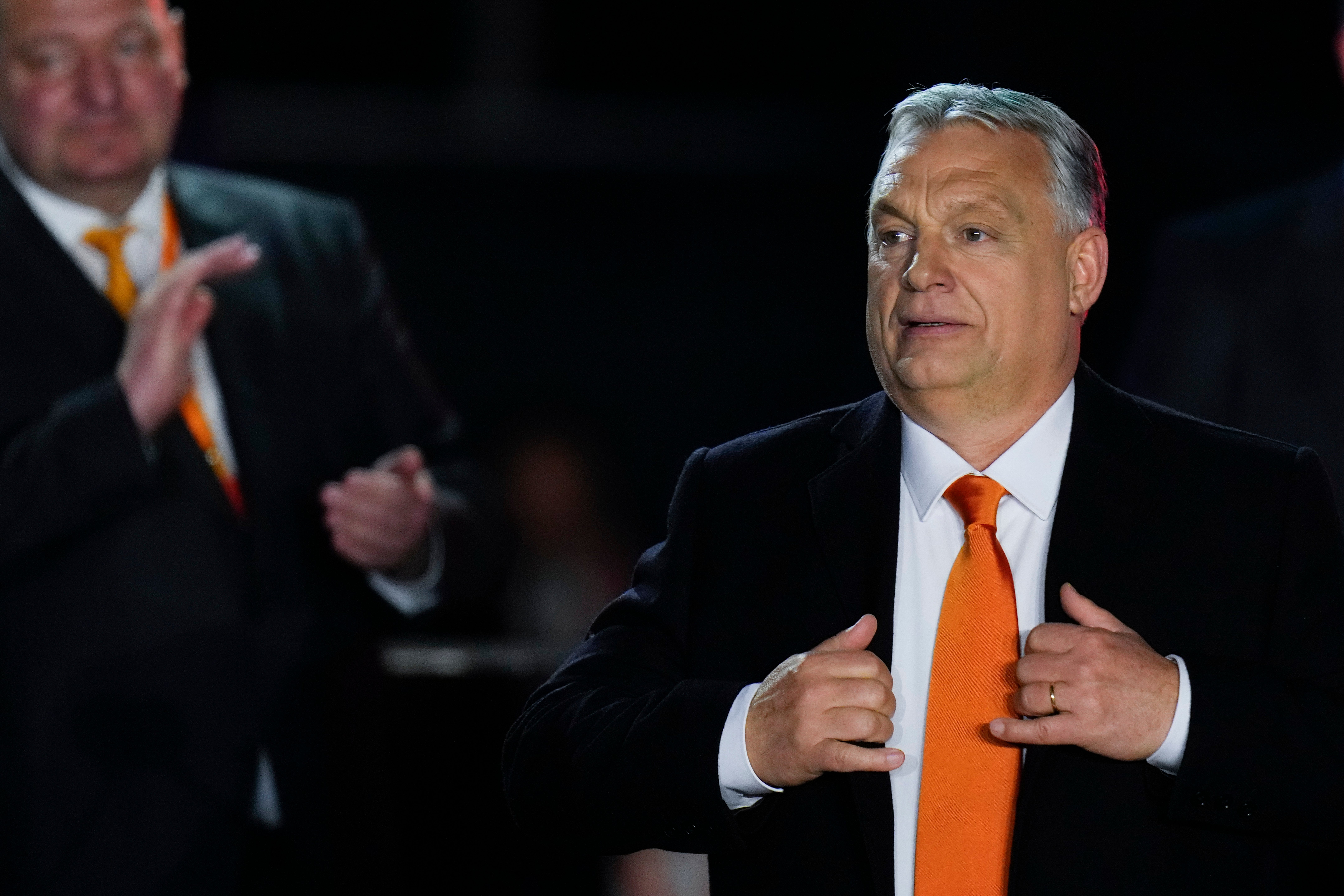How will Europe deal with Hungary’s Viktor Orban?
The dual east-west agenda of Hungary’s right-wing populist is delusional, but in democratic politics that sometimes works, as Sean O'Grady explains

Why did a country once cruelly occupied by Russia vote for a man who wants to be friends with Vladimir Putin? That is one of the many puzzles thrown up by Hungary’s election result.
Viktor Orban, a kind of central-European version of Nigel Farage, has managed to score a fourth successive term as prime minister. Not only that, but his Fidesz party has secured a “supermajority” in Hungary’s grand neo-Gothic parliament. With that, he can alter the constitution to his liking, further trimming civil liberties and extending the advantages of incumbency (to put it politely). His suppression of opposition sentiment has alarmed the EU, of which Hungary is, post-Brexit, the most awkward member.
Orban describes himself as “Christian democratic, conservative, patriotic”, and was something of a pioneer in the wave of nationalist populists who stormed their way into power in the middle of the last decade, with Donald Trump and Vladimir Putin acting as their informal leaders. Some might count Boris Johnson among them.
Subscribe to Independent Premium to bookmark this article
Want to bookmark your favourite articles and stories to read or reference later? Start your Independent Premium subscription today.
Join our commenting forum
Join thought-provoking conversations, follow other Independent readers and see their replies